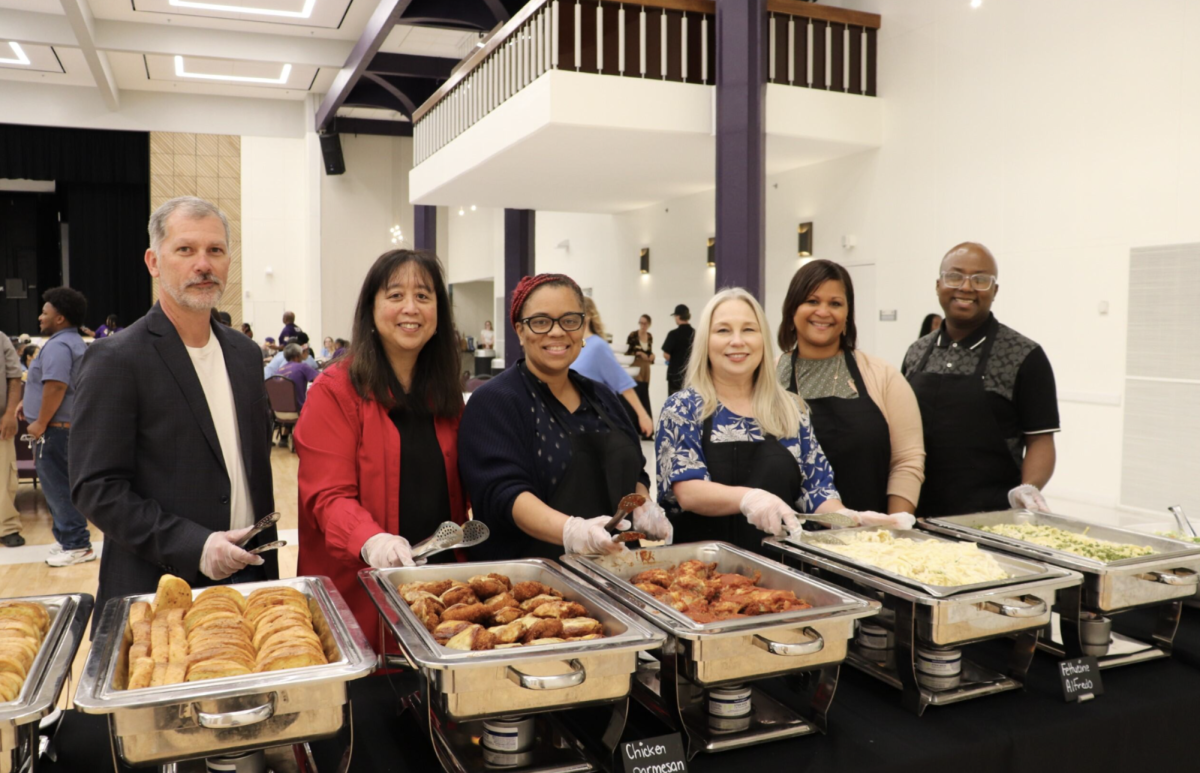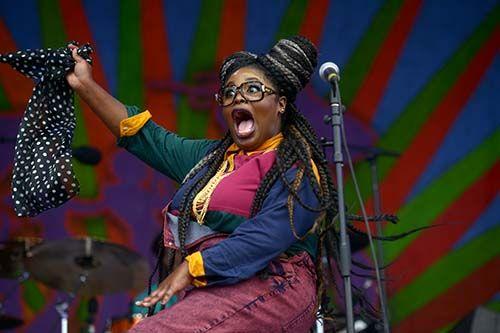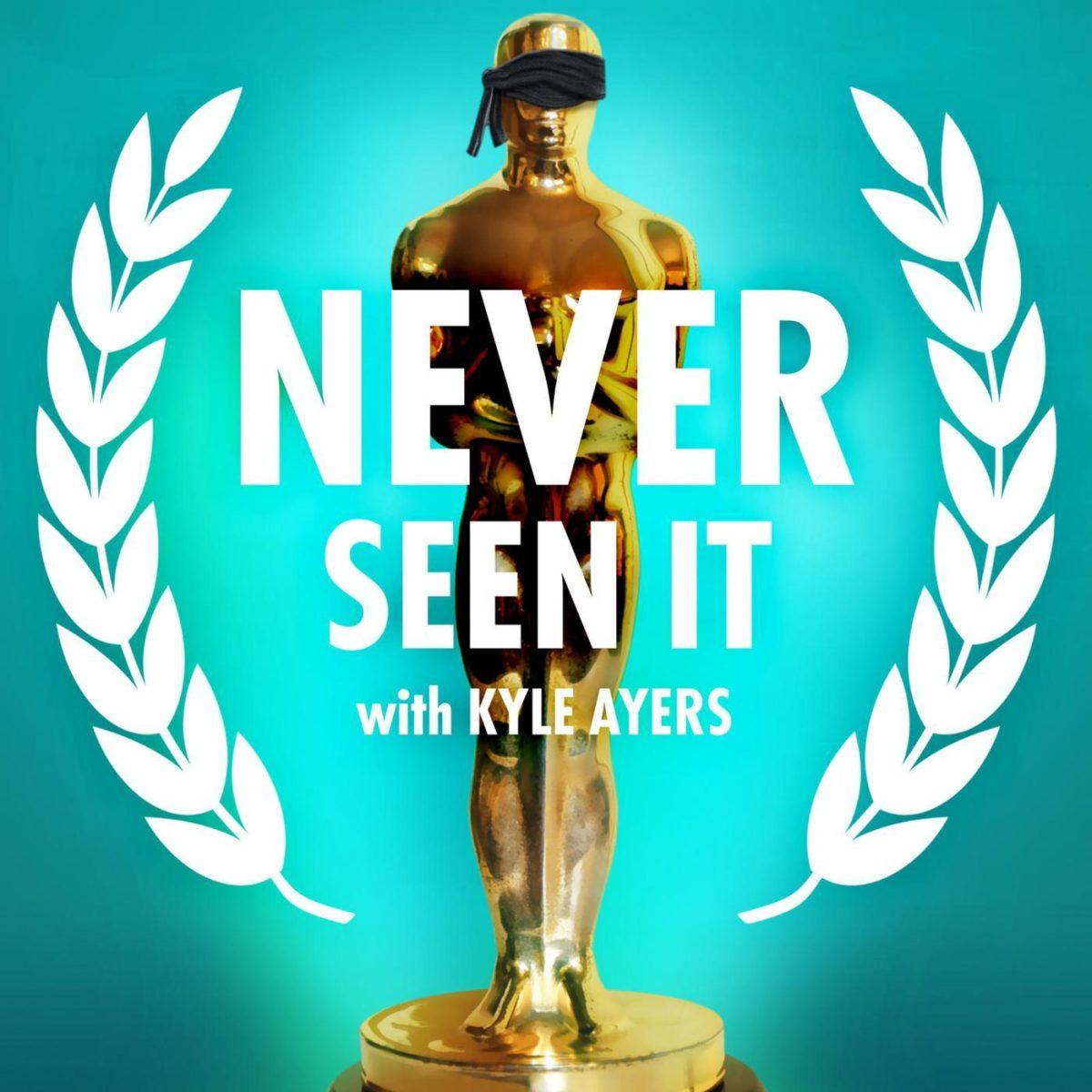Laura Helen Marks, a scholar from the United Kingdom, came to LSU to specialize in trauma studies, inspired by a course she took with Professor Marie-Luise Kohlke at University of Wales, Swansea.
However, her life’s trajectory would change thanks to a graduate gender and sexuality course at LSU.
Marks had always been very interested in films and literature that explored the body as a spectacle, particularly in terms of violence and sexuality. Marks took a graduate course on Gender and Sexuality at LSU with Professor Katherine Henninger, where the class watched a 1970s film called Mandingo.
A week or so later, Marks discovered an African American male porn performer who called himself Mandingo. This struck her as unexpected and interesting.
“I wanted to dig into the rhetorical gesture he and other black performers were making, using names like Mandingo and Nat Turner that are rooted in American slavery and racial histories,” she said.
This research became a conference paper on rhetorics of interracial pornography, which she wrote while taking two highly influential classes about black feminist theory, race and trauma. At the time, she didn’t really think that pornographic and sexuality studies was feasible topic to pursue for the rest of her life, but the more she looked into porn studies, the more she realized how rich of a field it was. It wasn’t long before she entirely shifted her research in that direction.
When Marks took a course on Dickens with Professor Sharon Weltman, she had no interest in Dickens, and viewed the class as criteria to complete her graduate requirements. However, thanks to Weltman’s support, she wrote an essay about a porn adaptation of “A Christmas Carol.”
“Thank goodness I took that class,” Marks said. “It was amazing.”
It was the deciding factor in what Marks eventually wrote her dissertation on: “Pornographic Adaptations and Appropriations of the Victorian Era and Victorian Literature.”
Marks’ dissertation argued the frequency of Victorian themes in pornographic films as a reliance on class and gender related spatial transgressions for erotic appeal. Her argument states because of the nature of sexual repression in the Victorian era, pornography relied on this theme as a way to represent the perversity of sexual acts in a time with strict class boundaries and repressive social structures.
With porn ultimately functioning as a media outlet, pornography continues to broadcast different cultural elements, and porn scholars often view porn as a mobile of social expression.
And, by some sort of extraordinary coincidence, when Marks contacted Kohlke – her original inspiration – she started the journal “Neo-Victorian Studies.”
But is it truly surprising to see a scholar make a career out of studying pornography?
On the topic of pornographic studies, Henninger, an English professor, attested to the validity of studying porn.
“Porn as an element of popular culture is a rich topic for academic study,” she said. “As Laura’s [Marks’] work shows, it partakes of all sorts of cultural tropes related to gender, race, class, and ethnic and national histories. You can learn a lot about cultures by analyzing what turns them on.”
Henninger said trained literary critics like Marks are particularly adept at seeing and explaining the ways that literature, art, and mainstream popular culture filter through to pornographic texts, and vice versa.
“The borders between ‘high’ and ‘low’ culture, between ‘serious’ politics and ‘base’ entertainment, are not as firm as we sometimes like to imagine,” Henninger said.
Nevertheless, with so much political and moral tension in the Deep South, it seems remarkable.
When asked about her experiences with LSU, Marks exclaimed “I love LSU! For the most part, the English department and LSU have been incredibly supportive.”
Marks said she believes the university rewards dedication and innovative scholarship, and that her committee members have been challenging and supportive in all the right ways.
While Marks had a hugely positive experience at LSU, she doesn’t deny that she has been asked very difficult questions and encountered uncomfortable conversations. But Marks believes that these conversations have informed her and helped cultivate her work in dynamic and productive ways.
“When I have encountered resistance, skepticism, or hostility, it has always resulted in better thinking and better work on my part,” Marks said. “Some people have asked me if it was hard doing this research in the South, at LSU, or what have you, I say yes it has been hard in some ways, but I wouldn’t change a thing.”
In addition to her fervent studies, Marks works with the LGBTQ community at LSU, especially the student organization Spectrum. Marks has collaborated numerous times on projects such as film screenings, talks and workshops at the Louisiana Queer Conference, and last semester her English 2000 class, with a special emphasis in gender and sexuality, partnered with Spectrum for service-learning. Various organizations have all been supportive of Marks’ work. Marks continues to be passionate in her studies as she was awarded a Dissertation-Year Fellowship by the university and had recently won the department’s Lewis P. Simpson Distinguished Dissertation Award.













